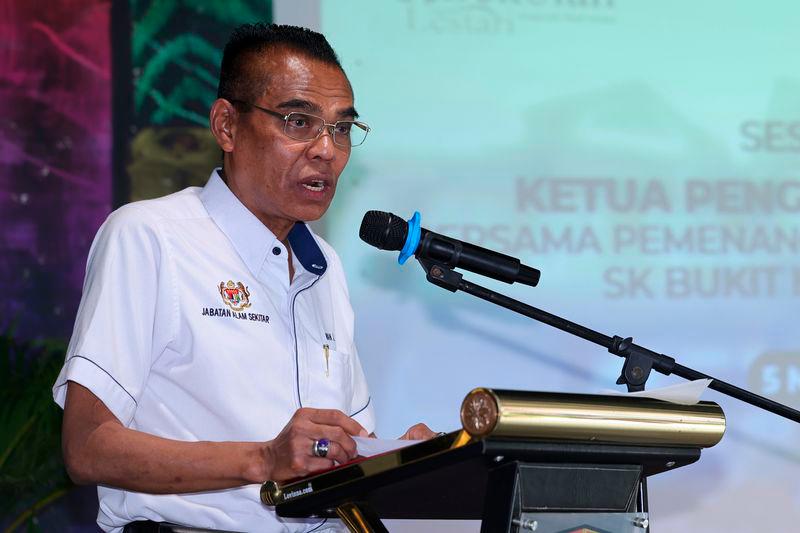JOHOR BAHRU: Discharges from sewage treatment plants are a significant contributor to the pollution of 25 out of 672 rivers across the country, Environment Department (DOE) director-general Datuk Wan Abdul Latiff Wan Jaffar said.
He said these polluted rivers have been identified in six states - Kedah, Penang, Selangor, Kuala Lumpur, Johor, and Sarawak, falling into water quality classes III and IV.
“In addition to sewage discharges, other pollution sources include livestock waste, industrial effluents, and sediment runoff from development projects during rainfall,“ he told a press conference after an interactive session with the media at Sekolah Kebangsaan (SK) Bukit Mutiara here today.
Also present were Johor Education director Mohd Hanafi Samad, Johor DOE director Dr Mohd Famey Yusoff, and SK Bukit Mutiara headmistress Noor Huda Hamid.
Wan Abdul Latiff highlighted that the number of polluted rivers has decreased from 29 last year, attributed to ongoing collaborative efforts by the DOE and various agencies.
He added that DOE will continue to monitor river water quality nationwide and enforce regulations to address pollution sources.
Regarding the amendments to the Environmental Quality Act 1974 (Act 127), Wan Abdul Latiff expressed confidence that these changes would help tackle environmental pollution issues.
“This amendment introduces stricter penalties. The DOE is currently preparing an investigation report, and we expect prosecutions under this new act to begin by the end of this year,“ he added.
The Environmental Quality (Amendment) Bill 2023, passed by the Dewan Rakyat on March 25, includes revisions to 28 sections of Act 127, raising penalties to a minimum fine of RM5,000, a maximum fine of RM10 million, and mandatory imprisonment of up to five years.









